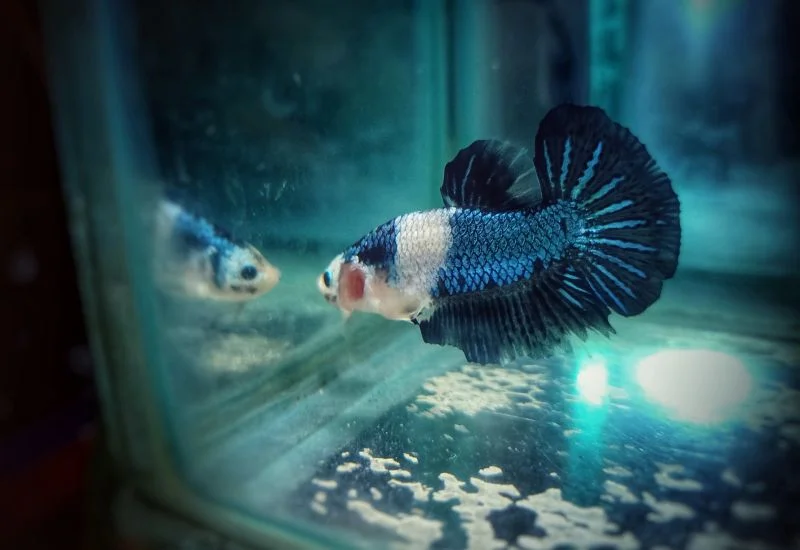Betta fish are among the most famous aquarium fish in the world. This fish is known for its diversity in colors and has 70 different types. Betta fish is easy to care for.
The life span of the fish may be short due to different reasons, but you will have an amazing experience while caring for them.
In captivity, the betta fish can live a little longer due to a good environment, food, and less danger. Here are some points that can help you in providing your betta the maximum life span.
The Lifespan of the Betta Fish
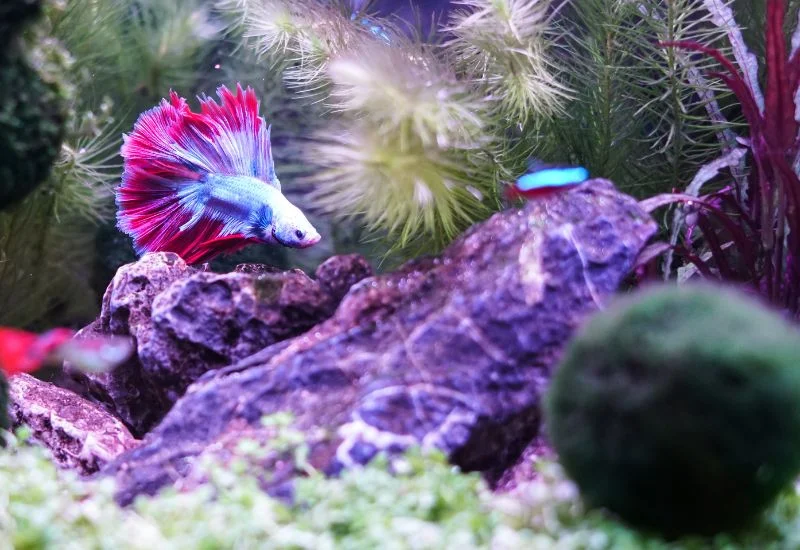
In the wild, the betta fish live for up to two years. The fish is native to South Asia. Live in slow, shallow, and warm water. The fish is also famous as Siamese fighting fish. Due to its males because they are aggressive due to territorial issues.
In captivity, the fish can live longer. The longest recorded life span is ten years. In captivity the fish is less stressed because there are no predators, availability of plenty of food, good water parameters and care is provided. In the tank, the fish can live up to 4 to 6 years within the ideal environment.
The life span in captivity varies, not all betta can live this long. There can be many problems that can shorten the life cycle of the fish. For example small tanks, bad water conditions, disease and stress.
Factors Affecting the Life Cycle of Betta
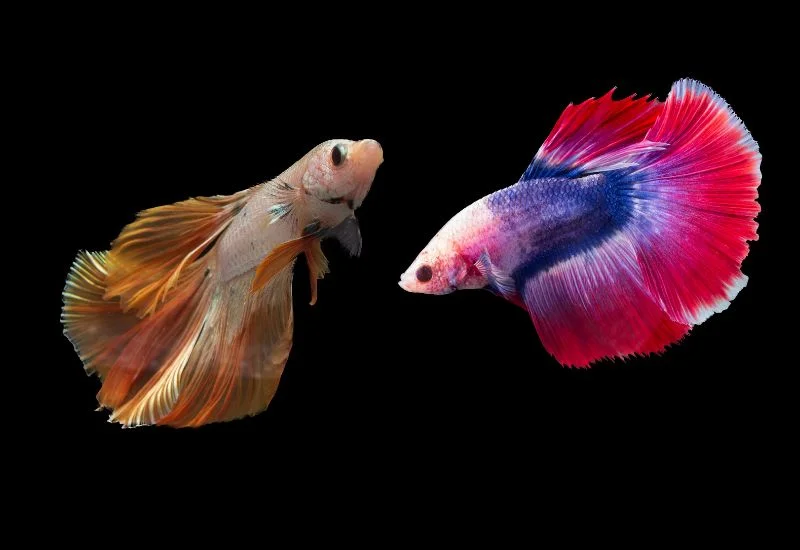
Here are some factors that influence the life span of your fish:
Environment
Environment plays a massive part in the life span of your fish. In the wild, the fish stays in the tropical warm water where the flow of water is slow. The fish cannot live in high currents that will damage the delicate fins of betta fish. Try to provide an environment where the water rate is slow and fish can control the water speed. In the wild fish have plenty of space, and a lot of plants to hide. Try to provide an environment that perfectly suits their natural habitat.
Tank Size
Due to the hard personality of the fish, they have mistakenly taken to living in small tanks. Betta is not happy in a small tank. The fish needs the space to swim. Tank with a capacity of at least 5 gallons would be perfect for the fish. Small tanks can cause stress to the fish and weaken their immune system, which can directly affect the lifespan of the fish.
Genetics
Like humans, the betta fish also inherited genes from their ancestors. That makes them somewhat more strongly inclined towards the common disease and parasite attack. They recover more quickly than other fish. Good genetics increase the lifespan of the betta fish.
Temperature
The betta fish is a tropical fish that lives in warm water. The cold water can kill the fish and lower their immune system. Hot water can age them quickly by accelerating their metabolism. The fish is in the temperature between 70° F to 80° F. Install a heater in the tank that maintains the water temperature. Attach a thermometer with the heater that will stop the water temperature from rising.
Lighting
Provide your fish with 14 to 16 hours of daylight to ensure they have 8 hours to rest in the dark. This will form a natural cycle of day and night for the fish. Do not place the tank of your fish in the exposure of direct sunlight. The excess amount of light can heat the water and can cause the growth of algae in the tank.
Diet
The diet plays a crucial part in the life span of the betta fish. Provide a diet that contains 35% to 40% of protein. Mostly the diet of betta fish is fat based which makes them slow and lazy. Try to avoid overfeeding your fish. That can cause constipation which can kill your fish.
Water Quality
The fish is very sensitive towards the water conditions of the tank. The poor water quality can cause many health issues to the fish. Try to do needed water changes to maintain the water quality of the tank.
Care
The proper care and attention can increase the lifespan of your fish. Handle your fish with care and pay attention to any behavioral change to address any disease. Pay attention to the eating habits of the fish or any signs of stress. If you find any sign, treat them immediately to provide maximum life to your fish.
Environmental Stability
Betta fish like to stay in a consistent habitat. The sudden change in the environment can put your fish into shock and weaken their immune system. Sudden changes in the environment can alter the water parameters of the tank.
Stages of Betta Fish Life
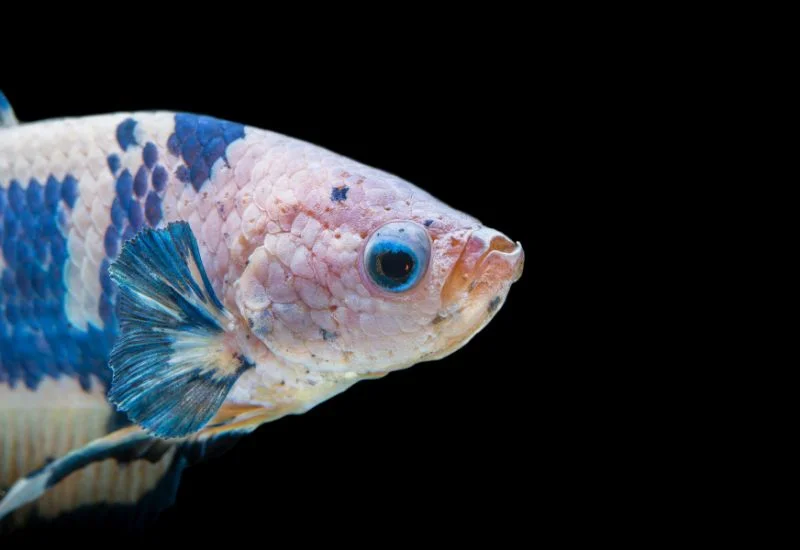
Betta fish is a beautiful fish due to its vibrant colors and beautiful fins. Here is the life journey of a betta fish:
1- Egg
The betta fish life cycle starts from the egg. The eggs are laid in a cluster and are well protected by the male betta fish. The color of the egg is translucent or white. In the egg, there is a black sign, which is the mark of the embryo. The survival of the eggs depends on the water conditions and the ability of male betta fish to safeguard them. The water’s parameters affect the hatching process of the eggs. The eggs need a specific water temperature to be hatched.
They need temperatures from 27° C to 30° C. The eggs will not hatch or grow in too much cold or water. The water quality should be good. There should not be any Ammonia, Nitrite, or Nitrate in the water. You can maintain the water quality by doing water changes and installing a good filter.
2- Fry
After the eggs hatch, the little bettas are called fry. They are not even an inch long. At the start they depend on their own yolk sac for the nutrients. Soon they develop the sign of coloration. Betta fry need extra care, good quality food and a stress free environment for their overall growth and good health.
Additional Guide on the Care of Betta Fry
- For the extra guide, use an air sponge filter or stone to provide oxygen to the betta fry, as their labyrinth is not fully developed yet
- The intensity of the filter should be low so it won’t end up sucking fry
- Maintain the water parameters. The temperature should stay between 29° C and 31° C
- Install the heater and attach it to the thermometer so the water temperature stays within specific parameters
- Do the needed water changes to avoid any buildup of ammonia in the water
- Feed fry small food several times a day. In the first week, you can feed them infusoria, and in the next, you can give them brine shrimp, micro worms and, later, you can introduce them to frozen food, pellets, and flakes
- After eight weeks, they show their gender. You can then separate them accordingly
3- Juvenile
As juveniles, there are alot of physical changes in the body of the fish. The fish grow in size and start exhibiting the coloration and characteristics. Juvenile stage is crucial; fish need proper care for their vibrant colors and a long life span.
Provide them a good and healthy diet. You can give them frozen food, live food, or pellets. Only provide them with food that they can finish in 2 minutes. Do not overfeed the fish. The juvenile betta can grow up to 2 inches in size.
Each fish needs at least 5 gallons of water. Proper care of live plants and plenty of hiding spaces. The juvenile betta is more energetic and likes to explore the environment. Provide them with a proper cycle of day and night to have good health. You can use artificial light to maintain the cycle and to control the intensity of light.
4- Young Adult
Betta reached the young adult stage at two months of age. It is the stage when betta attain maturity. This is the stage when fish is at its peak of vibrant colors and big beautiful fins. The proper diet and water condition help the fish in relaxing.
The care and attention at this stage of betta fish determine the long term health of the fish. Provide betta with a balanced and nutritious diet. Place plants, rocks and fish toys to provide the best stress free environment. Do not stuff the tank with too much decoration; there should be space for fish to swim.
5- Mature Adult
The betta fish reach the mature adult stage when they are 6 to 7 months old. It’s an age where they show their colors throughout their life. This is a time of stability. They need a proper diet and care for their long lifespan. Monitor the fish for any stress or diseases in order to prevent it on time. Maintain the water parameters so your fish can have a happy and healthy life.
Best Care to Provide Maximum Life to Your Fish
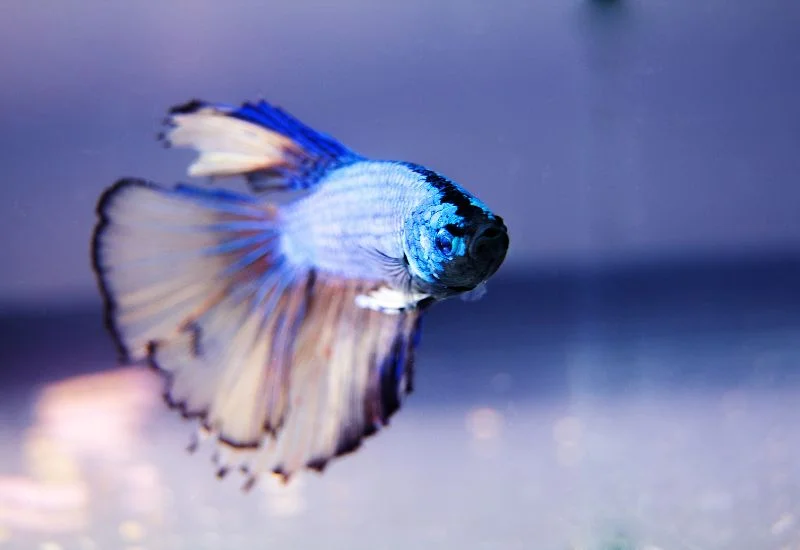
Here are different points that you can keep in mind while caring your beautiful betta:
Tank Environment
Maintain the environment of the tank by monitoring the water-conscious
- Control the growth of any harmful chemicals
- Provide plenty of caves, plants, and hiding spaces
- Do not overfill your tank with decoration. Leave some for your fish to swim
- Each betta fish needs at least 5 gallons of water
- Control the level of ammonia, nitrate, and nitrite in the water
- Weekly water changes should be made to maintain the quality of the aquarium’s water
- Place the aquarium at the perfect spot where there is direct sunlight
- Direct exposure to sunlight can cause algae growth in the tank
- You can use artificial lights to adjust their timing to form a cycle of day and night
Temperature and Filtration
Betta fish are tropical fish and stay in warm water.
- Install a heater and filter in the tank
- The filter will eliminate any harmful chemicals and prevent the buildup of ammonia
- Attach the heater with a thermometer that will control the water-required temperature
- Choose a filter that has a gentle flow; too much current of water can damage the delicate fins of the fish
Plants and Decoration
- Place live plants, rocks, and moss balls for your fish
- Betta fish have very curious personalities, and they love to explore
- Provide them with plenty of good spaces to explore
- Avoid adding plants that have sharp ends that can damage the fins of betta fish
- If you are using artificial plants, go for silk material-based plants. They are fish-friendly and save for the delicate fins of the fish
Look For any Behavior Change or Disease
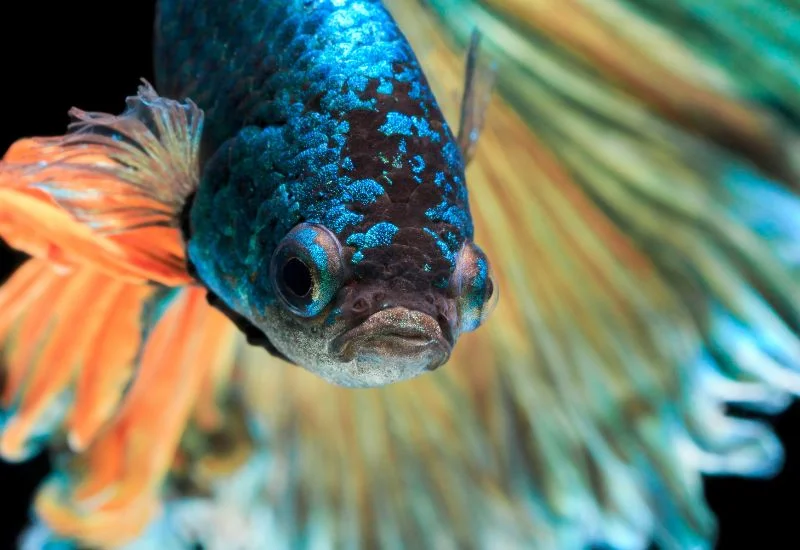
To provide a maximum life span, monitoring your fish’s behavior is very important. Here are some points you should notice:
- Discoloration or patches on the skin can be a sign of illness
- Loss of appetite
- Off swimming pattern
- Lethargic behavior
- Nip fins
- Decrease in aggression
- Change in the shape or size of the fish
Conclusion
People keep betta fish for their beautiful colors. The lifespan of the fish may be short, but you can try to maximize it by providing proper care and attention. In the wild, the fish can live up to 2 to 3 years, but in captivity the lifespan can be increased.
To provide a good and healthy life, you have to pay proper attention. Monitor the water parameters, maintain the water quality and temperatures, and install the filter and heater in the aquarium. Do not add two betta males in one tank; they are aggressive in nature for their territorial boundaries. This can cause stress and injury to your fish, which can reduce their lifespan.
The betta fish are tropical fish and stay in warm water. Changes in water conditions can cause serious health problems for the fish. In proper care, the fish can live up to 4 to 6 years. Look for any sign of change in behavior or in physical appearance to address any aliens on time.
